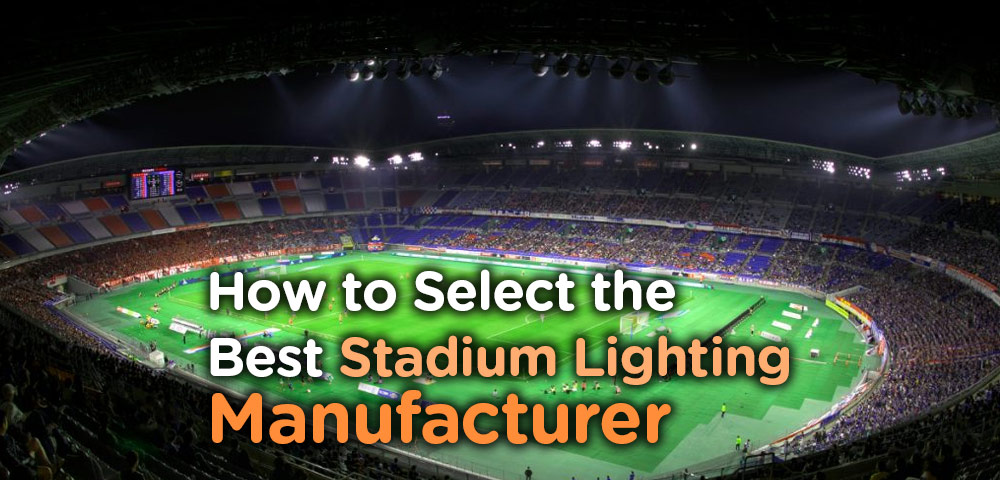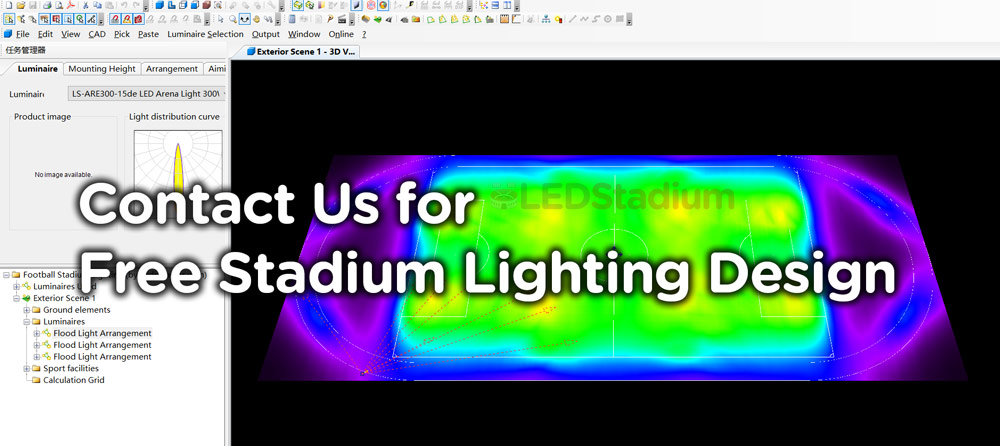Stadium lighting involves more than just the installation of lamps at strategic points. It comes with rules and standards that should be adhered to. With the advancement in technology, these standards have become a little more demanding. Therefore, getting the right manufacturer is very important.
Here’s a quick overview of the Benefits of Stadium Lighting. Good stadium lighting does a lot more than to light up the field. It provides numerous benefits to both the players and spectators.
- Safety. Adequate lighting makes it easy to see everyone. It makes it easy for spectators to safeguard their properties.
- Increases revenue streams by enabling owners to host other events such as concerts and festivals.
- It improves the experience for fans by making it easy to see what’s happening in the field. Additionally, these lights can be synchronized with audio effects.
See also: Importance of stadium lights
Understanding how to select the best stadium lighting manufacturer is the first step to a great sporting experience. Whether it’s new field construction or replacement of existing lighting, be sure to check the following factors, before picking a suitable manufacturer:
How to choose the best stadium lighting manufacturer?
1. Relevant experience
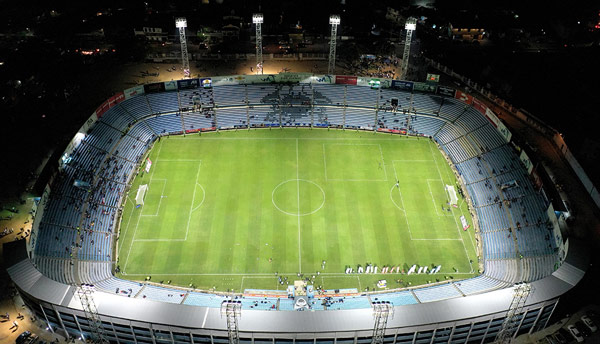 Be sure to check their credibility. What experience do they have? So how do you differentiate between an amateur and a professional? Check their portfolio and look into their training and expertise. The professionals’ quote will be accurate and detailed. A professional manufacturer should be knowledgeable about various lighting techniques.
Be sure to check their credibility. What experience do they have? So how do you differentiate between an amateur and a professional? Check their portfolio and look into their training and expertise. The professionals’ quote will be accurate and detailed. A professional manufacturer should be knowledgeable about various lighting techniques.
2. Free lighting design service
Different stadiums have different needs. To meet these needs, different varieties of lighting designs are often required, i.e., a variety of power options with diversified beams. Do your research. Decide the designs you would like to have and make sure it fits within your budget. After that, make a list of sports lighting contractors who are qualified to undertake your project. A good stadium lights supplier should outline suitable designs for prospective clients.
3. Response time
Any electrical breakdown affects service delivery, impacting your business negatively. Opt for a manufacturer who provides a 24/7 emergency response. In the event of a failure, it’s good to have the lighting serviced and restored back as soon as possible to get your business up and avoid disappointing your fans.
4. Warrants
What kind of warranties do they offer? A quality lighting manufacturer will have a warranty on both its products and services. Good lights come with a warranty. Keep in mind that the quality of stadium lights is as important as the quality of the design and installation process.
5. Type of stadium lighting they are selling
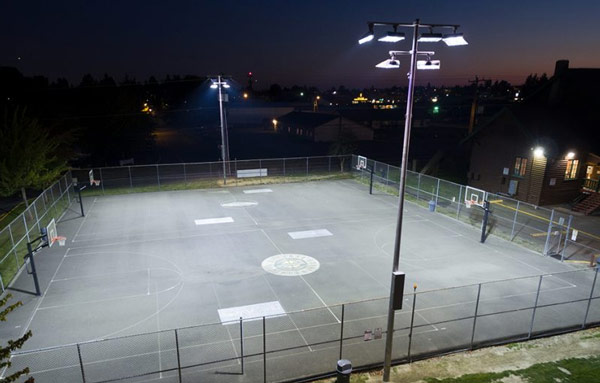 Stadiums and indoor sports arenas use HID lamps (high-intensity discharge), for their lighting needs. The basic structures vary depending on the size of the stadium. Go for a company that sells different varieties such as LED, metal halide, and halogen lights. However, LED Lights are the best option to save energy.
Stadiums and indoor sports arenas use HID lamps (high-intensity discharge), for their lighting needs. The basic structures vary depending on the size of the stadium. Go for a company that sells different varieties such as LED, metal halide, and halogen lights. However, LED Lights are the best option to save energy.
6. Background checks
Stadium lighting is a massive project. A large amount of money will be at stake. Before picking a company, it’s good to check with your state’s contractor licensing board, to find out if complaints have been filed. If complaints were filed, how were they resolved?
Confirm if the company holds a valid license (if you hire an unlicensed company, you will lose any protection provided by the licensing board)
7. Reviews and references
Ask colleagues for their recommendations and past experiences. Keep in mind that customer service is just as important as the quality of work. Go through client reviews. These reviews contain vital information, such as the professional behavior of the technicians.
A good manufacturer will take into account the needs of the audience.
The intensity of light required by the athletes is different from that of the spectators. Generally, athletes are always close to the line of sight; a low light intensity will meet their needs. For the audience, their main aim is to watch the game; their viewer’s line of sight is far and fixed. Good stadium lights should be tailored to meet everyone’s’ needs.
8. Understand your stadium
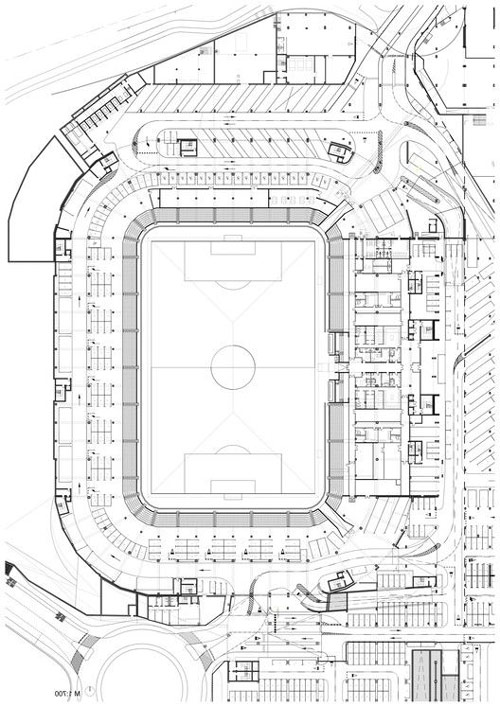 Know what you want before you get an estimate. For starters, get the layout of your field. Draw a 3D model to represent the actual environment. The more information you provide to your manufacturer, the more accurate the lighting plan.
Know what you want before you get an estimate. For starters, get the layout of your field. Draw a 3D model to represent the actual environment. The more information you provide to your manufacturer, the more accurate the lighting plan.
9. Verify insurance policy
Information is power. Know what is covered by your insurance and what is covered by your manufacture’s business insurance, in the event of an accident or unforeseen damages. Go ahead and get a copy of the company’s insurance policy.
10. Interview at least three companies
Get a written bid from each company, then compare their prices. However, don’t expect to receive high-quality services from the low bidder. If one of the companies is significantly below the others, it should raise the alarm. Don’t compromise quality because of the price.
11. Ask a lot of questions
The right lighting system can make a great difference for the fan experience. Therefore, before you make any decision, be sure to ask a lot of questions. How long has the company been in business? Are they licensed and insured? Can they provide references from both past clients? Will they subcontract a different firm? Are they offering the cheaper used stadium lights? What is their expected timeline for completion? A reliable manufacturer will be happy to answer all your questions. Don’t rely on just one research tool, but instead incorporate various tools.
12. Sign a detailed contract
It should include deadlines, payment procedures, and the exact lighting materials to be used. Ensure that your contract is a blueprint to what will be done. Have everything documented. If you don’t have it documented, it will be your word against theirs. Have an attorney go through, your contract to ensure that your interests are protected. If the agreement is not detailed enough, provide addendum’s cost.
Choose a company that fits your style and personality. If you love a personal approach, a small company is the right one for you. On the other hand, if you want, speed and professionalism, a larger company will serve you better.
Set a budget and stick to it. Avoid deviating from it once the job begins. Finally, get everything in writing and never pay more than 50% upfront.

